Who Will Revere US? (Black LGTBQ People, Straight Women, and Girls) (Part 4)
By Aishah Shahidah Simmons on April 26, 2012This is Part 4 of a four part article. Immediately following is the introduction to the series, originally published April 23, 2012, for your convenience. Part 1 can be read in its entirety here. Part 2 can be read in its entirety here. Part 3 can be read in its entirety here.
Introduction
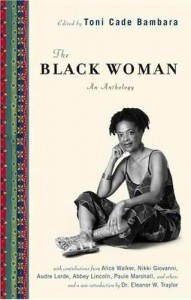 The title of this four part article is a metaphorical nod to the legendary jazz singer, songwriter, actor, and activist Abbey Lincoln (also known as Aminata Moseka) whose essay, “Who Will Revere The Black Woman?” is featured in the ground-breaking anthology The Black Woman. Edited by Black feminist author, screenwriter, and visionary activist Toni Cade Bambara, this all-Black woman anthology focused on the issues most pertinent to Black women and our communities. Originally published in 1970 and reissued in 2005 with a foreword by Dr. Eleanor W. Traylor, The Black Woman was the literary wo/manifestation of the impact of the intersection of the Civil Rights/Black Power movements and the second wave of the Women’s Rights movement on Black women’s lives. In short, Ms. Lincoln’s ageless essay is a demand for justice and protection for Black women. In her concluding paragraph she writes,
The title of this four part article is a metaphorical nod to the legendary jazz singer, songwriter, actor, and activist Abbey Lincoln (also known as Aminata Moseka) whose essay, “Who Will Revere The Black Woman?” is featured in the ground-breaking anthology The Black Woman. Edited by Black feminist author, screenwriter, and visionary activist Toni Cade Bambara, this all-Black woman anthology focused on the issues most pertinent to Black women and our communities. Originally published in 1970 and reissued in 2005 with a foreword by Dr. Eleanor W. Traylor, The Black Woman was the literary wo/manifestation of the impact of the intersection of the Civil Rights/Black Power movements and the second wave of the Women’s Rights movement on Black women’s lives. In short, Ms. Lincoln’s ageless essay is a demand for justice and protection for Black women. In her concluding paragraph she writes,
[…]Who will revere the Black woman? Who will keep our neighborhoods safe for Black innocent womanhood? Black womanhood is outraged and humiliated. Black womanhood cries for dignity and restitution and salvation. Black womanhood wants and needs protections, and keeping and holding. Who will assuage her indignation? Who will keep her precious and pure? Who will glorify and proclaim her beautiful image? To whom will she cry rape?
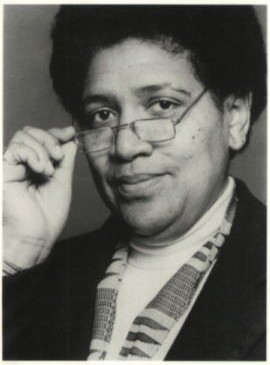 In her 1983 prophetic and timeless essay, “There Is No Hierarchy of Oppression,” self-defined Black feminist lesbian mother warrior poet Audre Lorde writes,
In her 1983 prophetic and timeless essay, “There Is No Hierarchy of Oppression,” self-defined Black feminist lesbian mother warrior poet Audre Lorde writes,
I cannot afford the luxury of fighting one form of oppression only. I cannot believe that freedom from intolerance is the right of only one particular group. And I cannot afford to choose between the front upon which I must battle these forces of discrimination, wherever they appear to destroy me. And when they appear to destroy me, it will not be long before they appear to destroy you.[1]
I am struggling to find the right time to discuss inter and intra-racial gender-based violence in the midst of the justified outrage about the rampant and virulent racialized violence perpetrated against straight Black boys and men. Even with this being Sexual Assault Awareness Month, now doesn’t feel like the best time to write about the gender-based and state-sanctioned violence perpetuated against Black straight women, girls, and LGBTQ (Lesbian, Gay, Bisexual, Transgender, Queer) people both inside of and outside of our racial/cultural communities. I fear that sharing what’s on my heart and mind, might be construed as my taking away from the “real” issue at hand in most Black communities, which seems to be solely white supremacist and/or state-sanctioned racist violence against straight Black men and boys.
Audre Lorde’s writings remind me, however, that discussions on oppression within Black communities should never be taken up within an either/or frame. The diverse herstories/histories and contemporary realities of Black straight women, girls, and LGBTQ people have consistently revealed that the issues that directly impact us often take a back seat, if they even make it into the metaphorical car on the freedom and liberation highway.
There is a collective understanding among many in multi-racial, radical progressive movements, that the white supremacist, patriarchal, heterosexist, imperial, and capitalist power structure is the root of all oppressions in the United States. While I believe that to be true, even in the company of other oppressed people, Black straight women and LGBTQ people are still under attack. Too often we are caught at the intersections of race, gender, and if we identify as LGBTQ, sexuality. In spite of our shared his/herstories of oppression, struggle, and perseverance against the odds, not enough Black people view sexism, patriarchy, misogyny, heterosexism and transphobia with the same kind of activist passion that we view racism, white supremacy, and state-sanctioned violence perpetuated against straight Black men and boys.
The reality is this: when Black straight men and boys are beaten, brutalized, and/or murdered as a result of state-sanctioned and/or white supremacist violence, it becomes (as well it should be) a national issue in the Black community and in a few, definitely not all, instances, the outrage moves beyond the Black community. Yet, when Black straight women, girls, and LGBTQ people are raped, sexually assaulted, beaten, brutalized, and/or murdered as a result of misogynist, patriarchal, state-sanctioned, and/or white supremacist violence, it is too often the victim’s individual issue.
There are so many egregious, known and unknown, cases of racial and gender-based violence perpetuated against all Black people, regardless of their gender, gender identity, and sexuality, that it is literally impossible to write about all of them. I want to highlight a selected few of the far too many, however, to ask Black/African-American/African descended people to consider our responses when any of us have been railroaded into the prison industrial complex, sexually or otherwise assaulted, or murdered. I want us, Black/African-American/African descended people, to consider our responses to issues that affect many as opposed to those issues affecting some of us based on our gender, gender identity, and/or sexuality.
***
Part 4
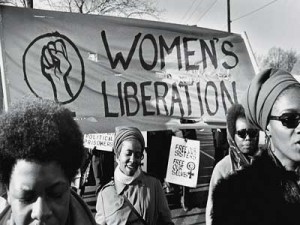 The selected cases in Parts 1, 2, and 3, and responses (or lack thereof) from mainstream Black non-LGBTQ organizations and individuals force me to ask some excruciatingly painful questions. What is the value and worth of Black straight women, girls, and LGBTQ people in our non-monolithic racial/cultural communities when we are raped, sexually assaulted, and/or brutalized as a result of patriarchal, white supremacist, and/or heterosexist violence? Why is it that, more often than not, it’s the lone few and not the majority who speak up and out against violence perpetrated against Black straight women, girls and LGBTQ people? This is especially painful when we look at the long standing herstories/histories and contemporary realities of how Black straight women and LGBTQ people have been and are often on the frontlines of struggles against injustices, most especially white supremacist injustices perpetuated against Black straight men and boys.
The selected cases in Parts 1, 2, and 3, and responses (or lack thereof) from mainstream Black non-LGBTQ organizations and individuals force me to ask some excruciatingly painful questions. What is the value and worth of Black straight women, girls, and LGBTQ people in our non-monolithic racial/cultural communities when we are raped, sexually assaulted, and/or brutalized as a result of patriarchal, white supremacist, and/or heterosexist violence? Why is it that, more often than not, it’s the lone few and not the majority who speak up and out against violence perpetrated against Black straight women, girls and LGBTQ people? This is especially painful when we look at the long standing herstories/histories and contemporary realities of how Black straight women and LGBTQ people have been and are often on the frontlines of struggles against injustices, most especially white supremacist injustices perpetuated against Black straight men and boys.
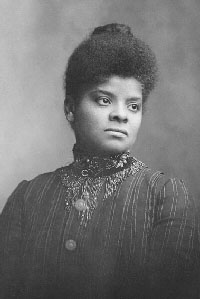 African-American feminist scholar-writer Dr. Barbara McCaskill gave a powerful abbreviated documented herstory, from the enslavement of African people to present day, of Black (straight and queer) women’s activism in response to white supremacist violence perpetuated against African-Americans in her article, “From Emmett Till to Trayvon Martin: How Black Women Turn Grief Into Action,” published by Ms. Magazine:
African-American feminist scholar-writer Dr. Barbara McCaskill gave a powerful abbreviated documented herstory, from the enslavement of African people to present day, of Black (straight and queer) women’s activism in response to white supremacist violence perpetuated against African-Americans in her article, “From Emmett Till to Trayvon Martin: How Black Women Turn Grief Into Action,” published by Ms. Magazine:
[…]By confronting a somnolent nation with the consequences of bigotry and fear, then stirring citizens into action, African American feminists have stood our ground, turning acts of violence and victimhood into opportunities for empowerment and advocacy. We’ve worked within black communities to develop anti-racist and anti-sexist strategies. We’ve claimed what Collins calls in Black Feminist Thought an ‘outsider-within’ position ‘whose marginality provides a distinct angle of vision’ on the politics of power and authority. This has enabled us to save our lives and communities by calling out the people, perceptions and policies that mask or deny the realities of African Americans’ experiences…
Many of us were justifiably appalled with Geraldo Rivera’s wretched “The hoodie is as much responsible for the death of Trayvon Martin as George Zimmerman was…” comments blaming Trayvon Martin for his choice of attire the day he was savagely gunned down by George Zimmerman.
The outrage at Rivera’s anti-hoodie comments sparked an unofficial “hoodie” movement, in which celebrities, theologians, politicians, students, and other individuals from all walks of life, started wearing hoodies. When I compare Rivera’s deeply disturbing comments to comments that are consistently made about rape victim-survivors, I am struck with how too many people are either unable or don’t want to draw the direct victim-blaming parallels to that of sexual assault and rape survivors. In fact, it was the comments from Toronto Police Constable Michael Sanguinetta who said on January 24, 2011 “women should avoid dressing like sluts in order not to be victimized” that spawned the global SlutWalk movement. As both a speaker at SlutWalk Philadelphia and a critic of how a blatant display of racism was never properly addressed at SlutWalk NYC, I’m fully aware of the very important critiques and concerns expressed by Black Women’s Blueprint (please read their ‘An Open Letter from Black Women to the SlutWalk’ here) and AF3IRM (please read “AF3IRM RESPONDS TO SLUTWALK: THE WOMEN’S MOVEMENT IS NOT MONOCHROMATIC” here) about the institutional racism, which framed many of the SlutWalks in North America. This article is not about SlutWalk.
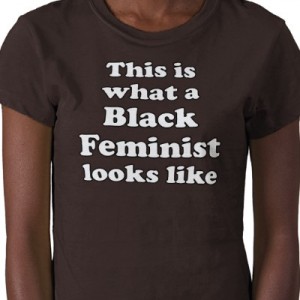 What I’m interrogating is why hundreds of thousands of us are so clear that it’s not okay to blame Trayvon Martin for his murder because of his choice of clothing the day that he was viciously gunned down by Zimmerman, but more of us are not clear that girls and women should not be directly and/or indirectly called sluts and whores based on their choice of attire; and subsequently blamed for any form of abuse they may experience because of the same. This kind of victim-blaming happens far too frequently with victim-survivors of gender-based violence. Ironically, Rivera expressed some (perhaps perfunctory) grief for Trayvon’s murder. For most victim-survivors of sexual assault and rape, however, we are not only blamed, but too often there is very little grief or sadness expressed on our behalf. Just reflect upon the treatment of the 11-year old girl-child in Cleveland, Texas, Ms. Nafissatou Diallo, and most victim-survivors whose testimonies are known.
What I’m interrogating is why hundreds of thousands of us are so clear that it’s not okay to blame Trayvon Martin for his murder because of his choice of clothing the day that he was viciously gunned down by Zimmerman, but more of us are not clear that girls and women should not be directly and/or indirectly called sluts and whores based on their choice of attire; and subsequently blamed for any form of abuse they may experience because of the same. This kind of victim-blaming happens far too frequently with victim-survivors of gender-based violence. Ironically, Rivera expressed some (perhaps perfunctory) grief for Trayvon’s murder. For most victim-survivors of sexual assault and rape, however, we are not only blamed, but too often there is very little grief or sadness expressed on our behalf. Just reflect upon the treatment of the 11-year old girl-child in Cleveland, Texas, Ms. Nafissatou Diallo, and most victim-survivors whose testimonies are known.
I want to be explicitly unambiguous here: I firmly believe Geraldo Rivera should be absolutely, positively ashamed and most remorseful that he not only uttered those words in public but that even with his apology, he continued to offer a caveat to justify his sentiments. I believe the expressed, justifiable outrage on the part of hundreds of thousands, if not millions, (including from his own son Cruz), in response to Rivera’s victim blaming comments played a direct role in Rivera giving an on-air apology to Trayon Martin’s parents, Tracy Martin and Sybrina Fulton.
The day before George Zimmerman was finally apprehended and charged with second-degree murder Rev. Al Sharpton made it plain that the time for inaction is over. In his April 10, 2012 article, “The Trayvon Martin and Tulsa Shootings: The Time for Inaction Is Over,” written for the Huffington Post, Rev. Sharpton addressed his outage in response to both the racially motivated murder of Trayvon Martin, and the Tulsa shootings, which resulted in the shooting of five African-Americans, of which three were murdered:
[…]Today, when we witness these unfortunate reminders of the historical imprint of racism resurfacing, we cannot act as if the issues can simply be swept under a rug. It’s time all of us engage in a long-term conversation on the elephant in the room — race. And as the Trayvon Martin case tragically proves, the topic cannot be discussed without dedicating an equal amount of time towards a serious look at our justice system. In addition to the criminalization and harassment of young men (and women) of color, the system often unfairly favors those not deemed a ‘threat’…
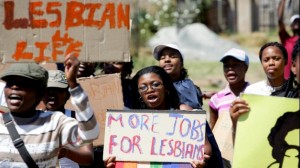 As powerful as Rev. Sharpton’s article is, he unfortunately did not also incorporate the March 22, 2012 murder of 22-year old Ms. Rekia Boyd, an unarmed Black woman gunned down by a white off-duty Chicago police officer. Neither did he include the attempted railroading of Ms. CeCe McDonald into the prison industrial complex. Both Ms. McDonald and Ms. Boyd are very clearly victims of racism and, in the specific case of Ms. McDonald, transphobia. Yes, it is literally impossible for Rev. Sharpton to incorporate every single contemporary (let alone herstorical/historical) racist assault perpetrated against African-Americans in one article. However, I believe it is important that while addressing white supremacist state sanctioned violence perpetuated against Black straight men and boys, he and others should also highlight cases that show how the intersections of racism, sexism, heterosexism, and transphobia are also a deadly combination for many African-American LGBTQ people, straight women and girls.
As powerful as Rev. Sharpton’s article is, he unfortunately did not also incorporate the March 22, 2012 murder of 22-year old Ms. Rekia Boyd, an unarmed Black woman gunned down by a white off-duty Chicago police officer. Neither did he include the attempted railroading of Ms. CeCe McDonald into the prison industrial complex. Both Ms. McDonald and Ms. Boyd are very clearly victims of racism and, in the specific case of Ms. McDonald, transphobia. Yes, it is literally impossible for Rev. Sharpton to incorporate every single contemporary (let alone herstorical/historical) racist assault perpetrated against African-Americans in one article. However, I believe it is important that while addressing white supremacist state sanctioned violence perpetuated against Black straight men and boys, he and others should also highlight cases that show how the intersections of racism, sexism, heterosexism, and transphobia are also a deadly combination for many African-American LGBTQ people, straight women and girls.
Race is a huge elephant in the room, but it’s not the only elephant in the room that is harming Black communities. Our tremendous difficulty with discussing gender and sexuality in Black communities are also enormous elephants, which stand right next to the huge race elephant. We can no longer afford to talk about race as the only elephant in the room in the 21st century. When we do that, we are ignoring life-threatening issues that are directly harming half of our communities.
Radical Black feminist lesbian activist, law student, and writer S. Mandisa Moore makes it plain in her March 28, 2012 article, “Why Don’t We Know Their Names? The Invisibility of Black Women and Girls,” written for The Oyster Knife:
[…]We invisibilize black women when we narrowly equate black men as representative of black people; when we focus on the criminalization of black men as if this is the only narrative of criminalization; and when we enable or participate in the collective amnesia that most black women NOT ONLY die as a result of the deadly combination of gender and racial profiling at the hands of private citizens and law enforcement agencies, but also from the hands of our black partners and family members. The black female body, including black trans women, is perceived as inherently sexually deviant and, thus, worthless. We DO DIE just walking down the street-whether we are profiled as a sex worker and raped and killed or, much like Trayvon Martin, just standing there. We also die at the hands of law enforcement-because to be black and woman, or to be perceived as possessing feminine characteristics, is to be unsafe in a world where you can be raped and/or murdered-by your partner, your neighbor, or police precinct #9 AND to live with the knowledge that no one will come to your defense…
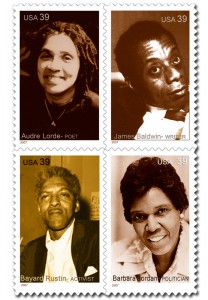 As a Black feminist lesbian who uses my cultural work to challenge sexism, misogyny, patriarchy, and heterosexism in addition to (not instead of) white supremacy, racism, and colonialism, my experience is that I often have to prove my loyalty to the race. It’s as if talking about sexism, misogyny, patriarchy, and heterosexism isn’t also a sign of loyalty to the race. Aren’t Black LGBTQ people and straight women members of the Black race, too? All of these categories effect all of us. They should be considered our issues. How can we continue to operate as if sexism, classism, misogyny, heterosexism, and transphobia aren’t also parts of the larger whole? Each should be non-negotiable inclusions in racial discourse.
As a Black feminist lesbian who uses my cultural work to challenge sexism, misogyny, patriarchy, and heterosexism in addition to (not instead of) white supremacy, racism, and colonialism, my experience is that I often have to prove my loyalty to the race. It’s as if talking about sexism, misogyny, patriarchy, and heterosexism isn’t also a sign of loyalty to the race. Aren’t Black LGBTQ people and straight women members of the Black race, too? All of these categories effect all of us. They should be considered our issues. How can we continue to operate as if sexism, classism, misogyny, heterosexism, and transphobia aren’t also parts of the larger whole? Each should be non-negotiable inclusions in racial discourse.
We, as extremely diverse, non-monolithic Black/African-American/African descended communities living in the United States, must remember that if racism, xenophobia, white supremacy, and/or colonialism ended right this second, Black straight women, girls, and LGBTQ people would still not be safe. Conversely, if sexism, homophobia, and heterosexism ended right this second, Black men, women, and transpeople, regardless of our sexual orientation, would still not be safe.
Quoting from Rev. Dr. Martin Luther King, Jr.’s visionary Letter from Birmingham Jail on April 16, 1963:
[…](We are) caught in an inescapable network of mutuality, tied in a single garment of destiny. Whatever affects one directly, affects all indirectly…
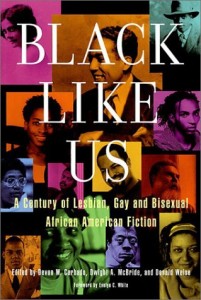 I don’t have to be you or even share your personal her/history to understand and respect your pain. I don’t have to approve of your sexuality or gender identity to honor your humanity. As long as we say and believe, “that’s not my context, therefore, I’m not responsible for your oppression and pain,” we’ll never eradicate all forms of violence perpetuated against all of us. And, as a result, none of us will be fully free from all forms of violence.
I don’t have to be you or even share your personal her/history to understand and respect your pain. I don’t have to approve of your sexuality or gender identity to honor your humanity. As long as we say and believe, “that’s not my context, therefore, I’m not responsible for your oppression and pain,” we’ll never eradicate all forms of violence perpetuated against all of us. And, as a result, none of us will be fully free from all forms of violence.
Black feminist lesbian scholar-activist Dr. Raena Osizwe Harwell wrote in a March 21, 2012, Facebook status post:
I am inspired by the outpouring of attention, rage, activism, and creative action in response to the Trayvon Martin murder. It is my hope that we understand this single case is a part of a broad history and trend of oppression. It is my greater hope that our response to this instance of racial (and gendered) violence is mirrored and matched the next time a woman of color, gay, lesbian or transgender person or any person subject to oppressive violence is victimized.
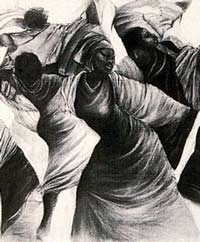 We must move out of the mold of solely addressing the horrific impact of racism and white supremacy on the lives of Black straight men and boys. If we don’t, over half of our Black/African-American/African descended communities will remain unsafe. If we had an intersectional approach, whose foundation included incorporating race, gender, gender identity, sexuality, class, citizenship status, religion, and/or physical ability, to address the multiple forms of violence that many of us experience outside and inside of our communities, we would be able to be more effective when working towards ensuring that all members of our communities are safe. I believe it is not until the most marginalized of us are safe from violence that we will all be safe from violence.
We must move out of the mold of solely addressing the horrific impact of racism and white supremacy on the lives of Black straight men and boys. If we don’t, over half of our Black/African-American/African descended communities will remain unsafe. If we had an intersectional approach, whose foundation included incorporating race, gender, gender identity, sexuality, class, citizenship status, religion, and/or physical ability, to address the multiple forms of violence that many of us experience outside and inside of our communities, we would be able to be more effective when working towards ensuring that all members of our communities are safe. I believe it is not until the most marginalized of us are safe from violence that we will all be safe from violence.
All Content ©2016 The Feminist Wire All Rights Reserved




28 Comments